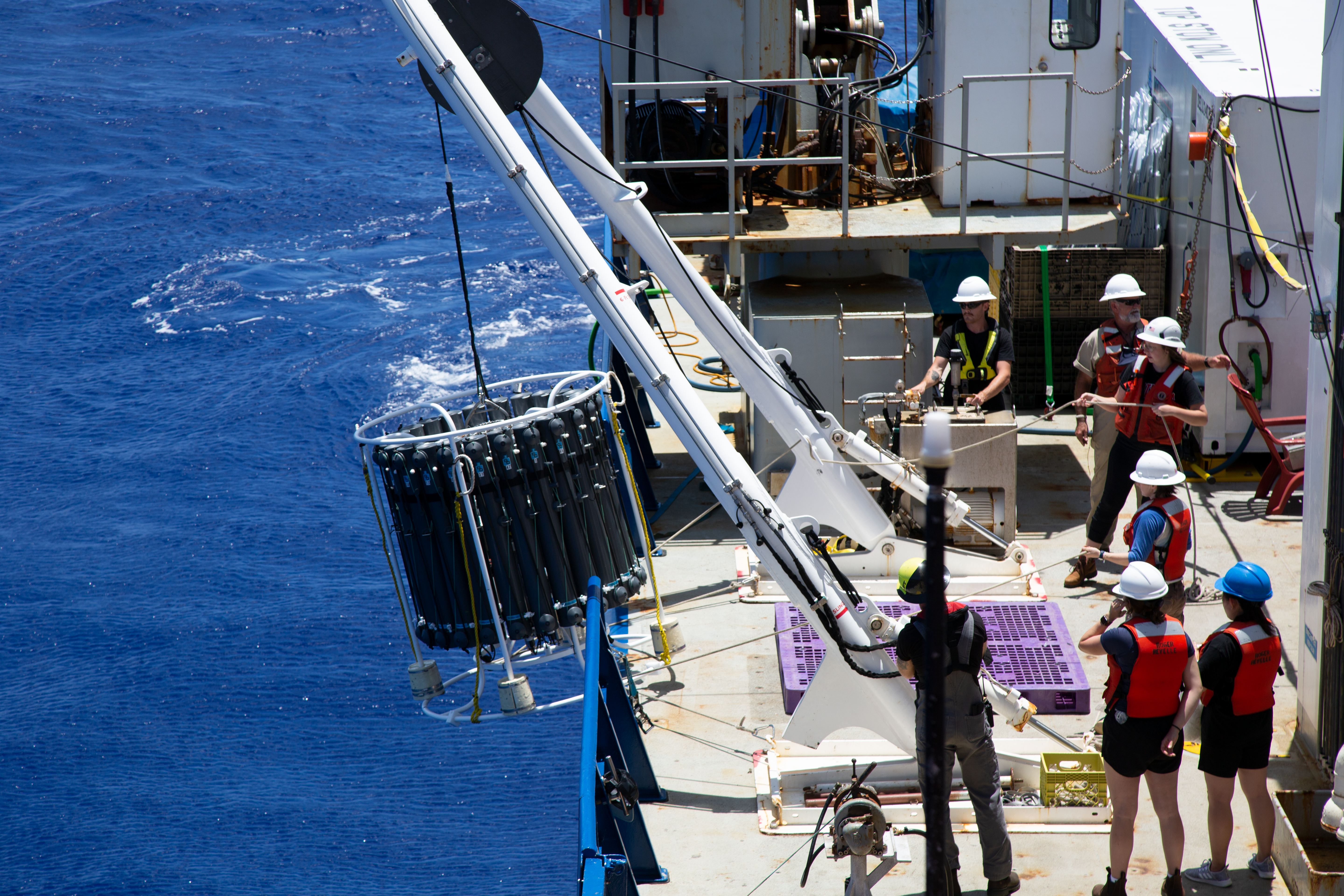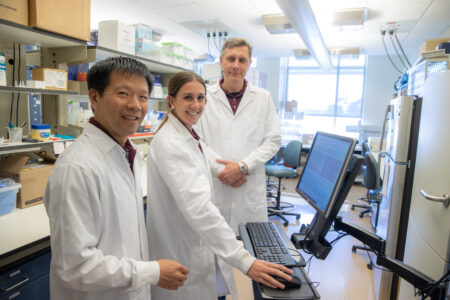Oceans are dying thanks to human-made climate change, according to the United Nations Framework Convention on Climate Change. Polar ice caps are melting and the oceans are becoming more acidic, while marine pollution is increasing dead zones and adding plastics and toxins into ecosystems we rely on for food, tourism and recreation. If these issues are not addressed, the future of humanity and the planet will be at stake. As Dr. Sylvia Earle, a world-renowned marine biologist and National Geographic Society Explorer-in-Residence, says, “We need to respect the oceans and take care of them as if our lives depended on them. Because they do.”
The world needs more people like Dr. Earle, and that’s exactly what the Department of Oceanography at Texas A&M University, a federally designated Hispanic-serving institution, sets out to do. The first oceanography department in the US, it is part of an alliance of Ocean Sciences at Texas A&M. The alliance represents a truly unique mix of educational and research resources where oceanography faculty and students explore ocean systems and how human activities impact them.

Hunter Adams, a top oceanography student, has interned in the prestigious University-National Oceanographic Laboratory System (UNOLS) Mate programme. Source: Texas A&M University
A deep dive into interdisciplinary learning
The Department of Oceanography provides interdisciplinary teaching and undergraduate research across biological, chemical, geological and physical oceanography. By advancing ocean sciences, technology and resources, it empowers future oceanographers with the critical thinking and problem-solving skills to lead the fight to protect the planet’s most precious resource.
Oceanography students build a foundation in STEM courses like math, physics, chemistry, biology and geology to solve real-life issues. The Bachelor of Science (BS) in Oceanography is a STEM-focused degree programme that has four themes: Ocean Observing Science and Technology (OOST), Ocean Climate (OC), Marine Ecosystems Processes (MEP), and Marine Chemistry and Geochemistry (MCG). Across these themes, you will gain the understanding of how the ocean affects society and how we impact the ocean. You will develop the skills to measure ocean properties and analyse large ocean datasets.
The OOST theme focuses on statistics and ocean observing systems, whereas the OC theme teaches advanced math skills to understand ocean climate interactions and modeling. On the other hand, the MEP theme highlights biological and ecological processes, while the MCG theme applies chemical and geochemical frameworks to understand the ocean.
At Texas A&M, you’re sure to find a course that suits your interests and career aspirations. If you’re not for the STEM-focused Oceanography BS, you can choose the Bachelor of Arts (BA) in Ocean Studies which is designed to pair with a minor in a variety of other fields such as business, education, public policy, and many more. For those who want more than the BS in Oceanography, there is the five-year Bachelor of Science in Oceanography and the Master of Ocean and Science Technology degree programme which allows students to obtain a non-thesis master’s while adding only one year to the typical four-year BS degree. You can take your pick from nine graduate degrees to further your studies too.
BS in Oceanography graduate Hunter Adams says that one of the best aspects of his Texas A&M University experience is applying the skills and knowledge he’s learnt in his work. “I got to assist oceanographers in collecting critical data for climate change research,” he says. “The programme’s interdisciplinary nature and many research projects allowed me to build close relationships with faculty and gain invaluable hands-on experience, particularly during fieldwork at sea.”

Pictured here is Adams during the annual, five-day Schade cruise. Source: Texas A&M University
Explore beyond the classroom
Oceanography students at Texas A&M don’t just study all day. With high-impact learning experiences like internships, study abroad programmes, and fieldwork, you can shape your future while protecting the world’s oceans.
First- and third-year students gain hands-on experiences through at-sea expeditions, and even more opportunities are available for those who want them. Take the annual Schade cruise, a five-day oceanography research trip in the Gulf of Mexico. Led by professors Chrissy Wiederwohl and Shari Yvon-Lewis, 12 undergraduate students get to try out various water sampling techniques and data collection activities while learning what it is like to be working at sea. But if you would rather stay on land, there are plenty of research projects that allow you to dive into ocean science without setting sail including many research opportunities processing and analysing samples in a lab setting, processing and analysing data on computers, and even using data science and numerical modelling to name a few.
What sets the Department of Oceanography apart is its global impact and forward-thinking approach to ocean research. Students find the answers to pressing issues, like how they can ensure a sustainable future for the planet, through the university’s advanced research facilities.

High-impacting learning experiences like the study abroad in Antarctica help students with hands-on connection to the science. Source: Texas A&M University
For example, the department is housed in the 15-story David G. Eller Building for Oceanography and Meteorology on the College Station campus, with access to offices, laboratories and classroom space. The Geochemical and Environmental Research Group occupies 20,000 square feet of laboratories and offices, plus an 8,000-square-foot warehouse and workshop area.
“During my time at A&M, the Oceanography programme was where I found the most rewarding experiences, both in class and out,” says graduate Norely Faz. “Because the department is smaller, you really get to know your professors and those relationships have been a huge help in finding future opportunities. Plus, the fieldwork opportunities gave me a clear idea of what I wanted to do in my career.”
Upon graduation, the department was so impressed with Faz’s abilities that it hired her as a lab manager. Similarly, other programme graduates have secured jobs in the marine industry, including technical support, operations, oil spill response, and more. With support from the Oceanography Society, including a job centre, career profiles, and tips for preparing posters and delivering scientific talks, your job search becomes much easier.
Follow Texas A&M University’s Department of Oceanography on Facebook, X, Instagram, and LinkedIn.












